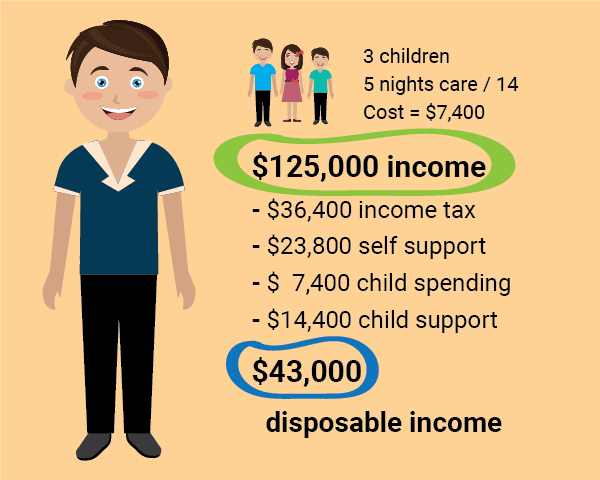
Based on the child support schedule, they must cover a total of $220 in child support per month. It works like this: let's say that Parent A and Parent B have one child together and their combined income is $1,000. This total amount is then divided between the parents in the same proportion as their individual contributions to the combined income. To calculate child support, use the combined net income of both parents (in other words, add your net income to the other parent's net income) to determine the total amount of child support due. You can access Washington's Child Support Schedule on the state legislature's website. Using Washington's Child Support Guidelines
#Child support calculation tool code
Code § 26-19-071 (2020) and the Washington Courts Schedule and Worksheets. For a complete list of these deductions, see the Wash. You can also deduct certain retirement and pension contributions, dues, and business expenses from a parent's gross income. Net income is gross income minus state and federal income taxes, FICA taxes, and court-ordered maintenance (like spousal support or child support from another case) already paid. Once you have both parents' gross incomes, you make deductions to determine the net income for each. If either parent married someone else, the new spouse's income should be excluded. There are a few benefits that you can leave out of gross income calculations, like gifts, prizes, food stamps, and alimony received from another relationship. A court has the authority to impute-or assign-income to a parent who is voluntarily unemployed or underemployed based upon that parent's work history, education, health, and age, among other factors. A deadbeat parent who tries to avoid responsibility for child support by not working will be held accountable for a share of the combined income. Parents can't shirk their responsibility to pay child support. Income can also come from veteran's benefits. Even an unemployed parent may have income for child support purposes if he or she receives social security payments, workers' compensation, unemployment, or disability benefits.

It is also money received from dividends, interest, royalties, or a trust. Gross income includes your salary, wages, bonuses, commissions, pension, severance, or military pay. A parent's gross income is money received from all sources. To estimate child support using the Washington child support schedule, you'll need to know the gross and net incomes of both parents. Calculating Parents' Income for Child Support Depending on each parent's needs and the best interests of the child, a court could adjust support payments up or down.

In any event, a judge must approve the final child support amount. While parents may agree to pay more than the Washington child support guideline amount, they can't pay less unless a court finds that it's in the child's best interests. This could mean everything from providing dental insurance to reimbursement for prescriptions. Also, a court will order one or both parents to cover the child's medical care. Both parents must share childcare and other costs, like those required for the child's education or travel for visitation. In addition to the basic support shown by the schedule, however, parents must also cover additional expenses. You can determine your child support obligation based on the parents' combined income, the number of children, and the children's ages. The child support schedule is based on Washington's state child support guidelines. You can estimate your share of support by using the Washington child support calculator. The custodial parent (parent who lives with the child) is responsible for child support too, but Washington child support laws assume that the custodial parent spends money directly on the child. Typically, the noncustodial parent (parent who spends less than 50 percent of the time with the child) pays child support. Your Washington child support award will depend on your custody arrangement and each parent's income. In Washington, a court could order one or both parents to pay child support. How Is Child Support Calculated in Washington?


 0 kommentar(er)
0 kommentar(er)
